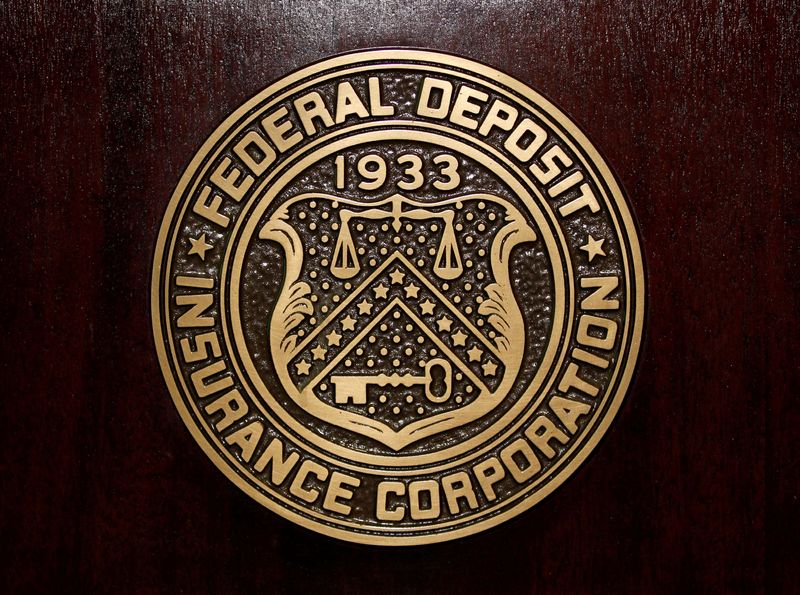(Reuters) - U.S. banks have started to detail the expected impact to their costs from the "special assessment" fee they have to pay to replenish the Federal Deposit Insurance Corporation's deposit insurance fund.
In May, the banking regulator said large U.S. lenders would bear most of the costs to replenish the fund.
Here is what banks have disclosed so far:
Expected
Bank Estimated costs timeline to recognize
costs
Wells Up to $1.8 bln Will expense the entire
Fargo pre-tax amount upon FDIC's
finalization of the
proposal.
Bank of Non-interest Cost would be recognized
America expense of upon finalization of the
nearly $1.9 bln proposal.
Goldman About $400 mln Expense would be
Sachs pre-tax recognized entirely in
Group the quarter in which the
rule is adopted.
PNC Nearly $468 mln Would be incurred in the
Financial pre-tax, or $370 quarter the FDIC
Services mln after-tax finalizes the proposal.
Group
JPMorgan (NYSE:JPM) About $3 bln Would be recognized in
Chase pre-tax the quarter in which the
proposal is finalized,
which is expected in the
second half of 2023.
Morgan About $270 mln Will recognize after the
Stanley final rule is published.
Truist About $460 mln Would be recognized at
Financial the time the proposal is
finalized and paid in
eight quarterly
installments beginning
in the first quarter of
2024.
Up May incur a
Citigroup (NYSE:C) to $1.5 billion significant increase in
pre-tax operating expenses if
the final rule for the
FDIC special assessment
is enacted as proposed,
which is expected before

2023 end.
Source: Bank quarterly filings